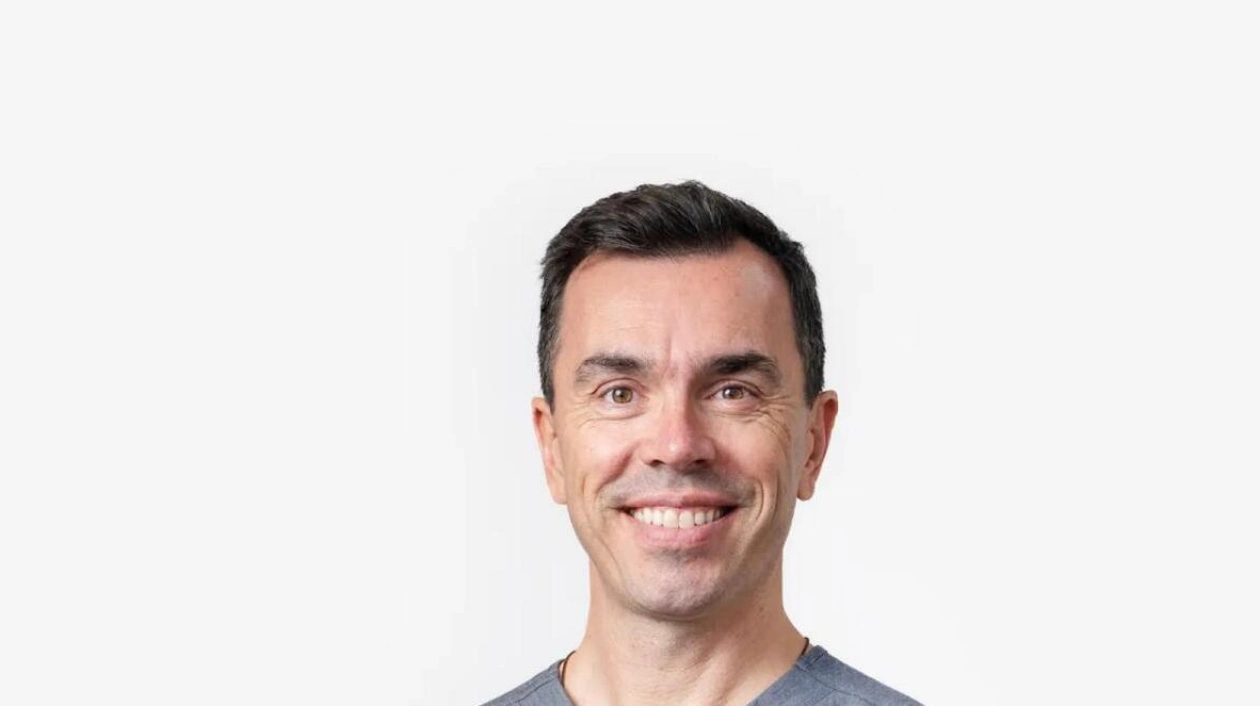Dr. David Roze [MAIN GUY]
If we only realised how many diseases originate in the mouth, we’d take our oral health so much more seriously. The mouth is often referred to as the gateway to the body, with many systemic diseases — such as heart disease and diabetes — tracing their origins back to oral health issues. This crucial connection highlights the importance of maintaining good dental hygiene and seeking holistic care.
Biological dentistry embodies this holistic approach, focusing on the patient’s entire well-being by prioritising the use of non-toxic materials and minimally invasive techniques. Biological dentist, implantologist and founder of Roze Bio Health, Dr. David Roze, stands at the forefront of this movement. With a commitment to the philosophy of “primum non nocere” — first, do no harm — Dr Roze advocates for a comprehensive perspective on dental health.
In conversation with Dr. Roze, we explore the principles of biological dentistry, its benefits, and what it means for our overall health. Edited excerpts from an interview:
Dr. Roze, can you explain what Biological Dentistry is and how it differs from traditional dentistry? Biological dentistry takes a comprehensive approach to dental care, emphasising the connection between oral health and general health, and recognising that what happens in the mouth can significantly impact the rest of the body. While traditional dentistry has focused on treating dental issues in isolation, using materials and methods that may not consider their effects on systemic health; biological dentistry prioritises biocompatible materials, preventive care and minimally invasive techniques. Our approach aims to treat the whole person rather than just the dental problem.
How does oral health impact overall health? Oral health is intricately linked to overall health, functioning as a gateway to the body. The mouth hosts a complex ecosystem of microbes, and when this balance is disrupted — whether through infection, inflammation, or use of toxic material — it can lead to serious health consequences. For instance, bacteria from the mouth can enter the bloodstream, potentially affecting organs such as the heart. Research shows that poor oral health can lead to systemic diseases. Conditions like endocarditis, where the heart’s inner lining becomes inflamed due to bacteria, highlight the importance of maintaining oral hygiene. A cardiologist may even recommend dental check-ups before surgery to ensure there are no existing infections that could complicate procedures.
Moreover, the types of materials used in dental work can have implications for overall health. For example, heavy metals in fillings can leach into the body, leading to potential toxicity. This is why it’s essential to monitor dental materials and their interactions with saliva, as they can travel beyond the mouth.
What are the key principles that guide your practice in biological dentistry? Our practice is guided by several key principles that are essential to our holistic approach to dental care: 1. Prioritising patient education: We believe that knowledge is power, especially when it comes to health. By educating our patients about their oral health, we empower them to make informed decisions regarding their dental care. 2. Utilising biocompatible materials: In biological dentistry, the materials we use are crucial. We use materials such as composite resins, ceramics, and bioactive glass that are non-toxic and well-tolerated by the body. These materials are important because they reduce the risk of allergic reactions and toxic exposure compared to traditional materials, such as amalgam fillings that contain mercury. Our goal is to restore dental health without compromising systemic health, and using biocompatible materials is a crucial part of that philosophy. 3. Taking a preventive approach: Prevention is at the core of our practice. We focus on maintaining oral health and preventing issues before they arise, rather than merely treating problems as they occur. This involves regular check-ups, cleanings, and personalised care plans tailored to each patient’s unique needs. By identifying potential issues early on and addressing them proactively, we can help our patients avoid more serious complications in the future. This approach also saves time, money, and discomfort in the long run. 4. Emphasising a healthy oral microbiome: We understand that the oral microbiome is a complex ecosystem that significantly impacts our overall health. A balanced oral microbiome supports our immune system and helps prevent various health issues — from dental decay to systemic diseases. We educate our patients on how to maintain a healthy oral environment, including the importance of diet, oral hygiene practices, and regular dental visits.
What would you say are the consequences of untreated oral issues? Infections in the mouth, like an abscessed tooth, do not remain isolated. They can lead to widespread infections, affecting various organs and systems. According to traditional Chinese medicine, the connection between specific teeth and corresponding organs further illustrates how oral health impacts overall well-being. For instance, dental issues can exacerbate autoimmune diseases like Hashimoto’s. In short, oral health is important and must not be ignored, as it influences not just the mouth but the entire body.
How do you approach treatments in a minimally invasive and holistic way? We prioritise minimally invasive treatments to preserve as much of the natural tooth structure as possible. This may involve techniques such as air abrasion for cavity removal instead of traditional drilling or utilising ozone therapy to disinfect and promote healing. Our goal is to minimise trauma and encourage natural healing processes, allowing for better long-term outcomes.
What advice do you have for individuals looking to improve their oral health? Start with regular dental check-ups and cleanings, but also pay attention to your diet and lifestyle. A balanced diet rich in whole foods can support oral health, while avoiding excessive sugar can prevent decay. Incorporating good oral hygiene practices — start with proper brushing with the correct toothbrush and toothpaste, flossing, and using a tongue scraper.
What future developments do you foresee in the field of biological dentistry? The field of biological dentistry is evolving, with an increasing awareness of the interconnectedness of oral and systemic health. I foresee advancements in regenerative dentistry, which focuses on healing and regenerating tissues rather than merely treating symptoms. Additionally, the integration of technology, such as DNA analysis and personalised treatment plans, will further enhance our ability to provide tailored care for our patients.
Source link: https://www.khaleejtimes.com






